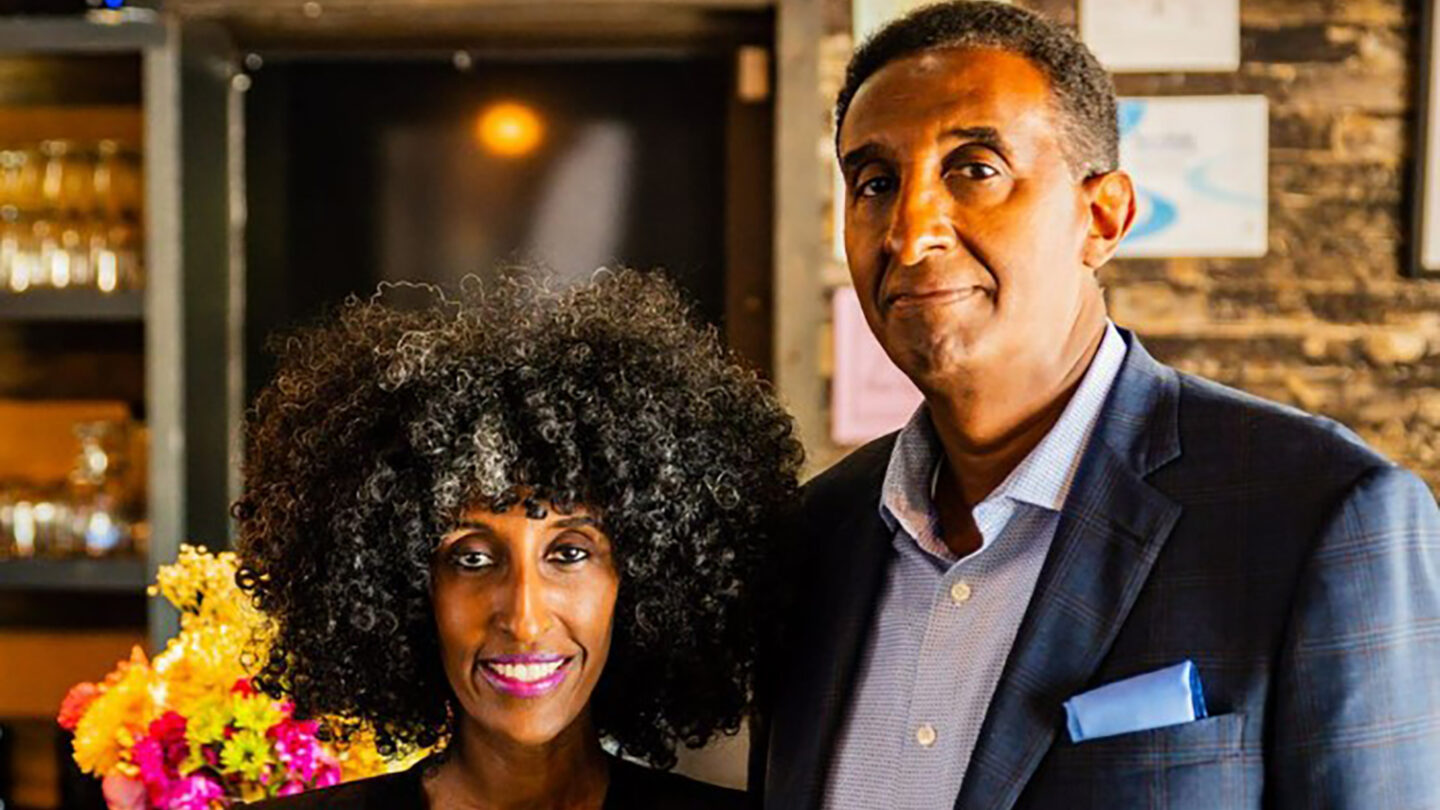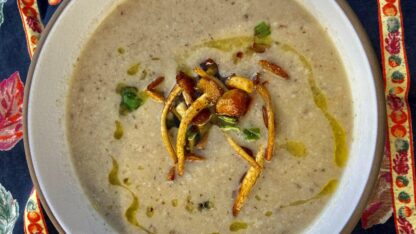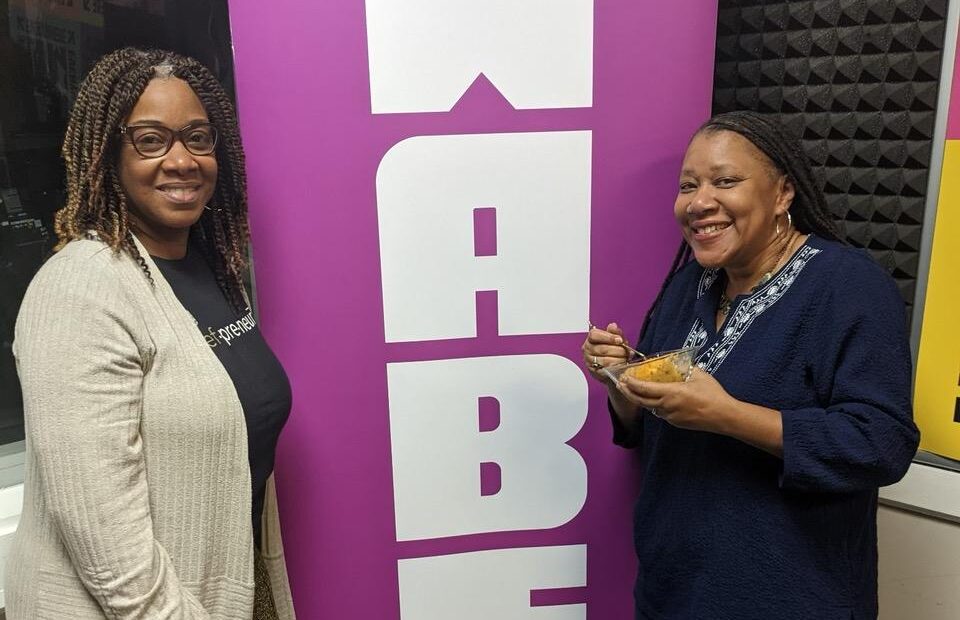Atlanta Ethiopian and Eritrean restaurant Feedel Bistro honors family traditions while expanding menu options

In 2018, sister and brother Tamar Telahun and Simon Gebru opened the Atlanta restaurant Feedel Bistro. They wanted to celebrate their Ethiopian and Eritrean culture with food inspired by their mother’s recipes. This year, the siblings updated their menu, focusing entirely on vegan, vegetarian, and pescatarian options. Telahun and Gebru joined “City Lights” host Lois Reitzes via Zoom to share more about the food traditions celebrated by their family restaurant.
Interview highlights:
Building a menu in honor of mom’s cooking:
“We are not trained chefs at all. I think mom’s cooking played a big role in our upbringing anyway. Mom was the glue, the tape, the stapler that held everyone together, not just in our family, but in distant families as well. She cooked food with love, and she healed you with kind words, love and the way she cooked,” said Telahun. “So although we are not trained chefs, we both know how to cook very well, and we took… the majority of the inspiration from her cooking style, and twisted some of them to our own.”
She went on, “She is just one of those mothers that always cooked amazing food all the time, and so we, as we are creating the menu – and she played a big part in creating the menu – we made sure that we brought the traditional things that are very authentic. But then, a couple of dishes, Simon and I would compete and exchange ideas and come up with different menus and different ingredients to incorporate into the new world; I guess you could say.”
A culinary spread based on handmade breads and savory accompaniments:
“The food that we eat in Ethiopia and Eritrea, I can say predominantly, is kind of unique comparing to a lot of sub-Saharan African countries. A lot of sub-Saharan African countries consume rice, and that’s part of their food. We do not eat rice at all. We have our own bread that is made of – currently here it’s called an ancient grain – it’s called teff, and usually that’s a staple food, and that’s a very flavor-intensive bread,” explained Gebru. “Usually the teff flour is mixed and fermented for three days… Here in the US, the bakers don’t have time to do three days. It went through a lot of experiment to even get it to what we have now, but currently they do about a 24 hour fermentation.”
“The other one is the sauce,” Gebru continued. “The sauce is divided into, let’s say two: the vegan part and the non-vegan part. We have a lot of non-vegan meat; goat, lamb, chicken and beef. These are the most dominant protein that we do. But the vegan is also, I can say, inspired maybe by the Orthodox Church. There is a lot of fasting or Lent within the Orthodox Church, and most of the time I can say, most of our parents, half of the year they’re vegan. So because of that, there’s a lot of vegan dishes that are available. And we did not even touch 1% of the food. It’s just a lot, because of the practice that they have; they have developed very interesting vegan foods, and very flavorful.”
Vegan, vegetarian and pescatarian out of pragmatism and popular preference:
“The food that we eat in Ethiopia and Eritrea, I can say predominantly, is kind of unique comparing to a lot of sub-Saharan African countries. A lot of sub-Saharan African countries consume rice, and that’s part of their food. We do not eat rice at all. We have our own bread that is made of – currently, here it’s called an ancient grain – it’s called teff, and usually that’s a staple food, and that’s a very flavor-intensive bread,” explained Gebru. “Usually, the teff flour is mixed and fermented for three days… Here in the US, the bakers don’t have time to do three days. It went through a lot of experiments to even get it to what we have now, but currently, they do about a 24-hour fermentation.”
“The good thing about it is that we don’t have to reinvent anything,” said Gebru. “Vegan food is very, very common in both Eritrea and Ethiopia, and there’s a lot of selection. We just had to pick which vegan food we wanted to include in our restaurant. In terms of flavor, whether you order protein-based or vegan, the spices are almost the same. So here in the US, you know, there are a lot of vegan restaurants, and the vegan food is a little bit boring. It could be boring, and people have to be creative. We don’t have to create much, because we’ve been eating this vegan food for years.”
More information about Feedel Bistro, open six days a week in Briarcliff Heights, is available at https://feedelbistro.com/.








